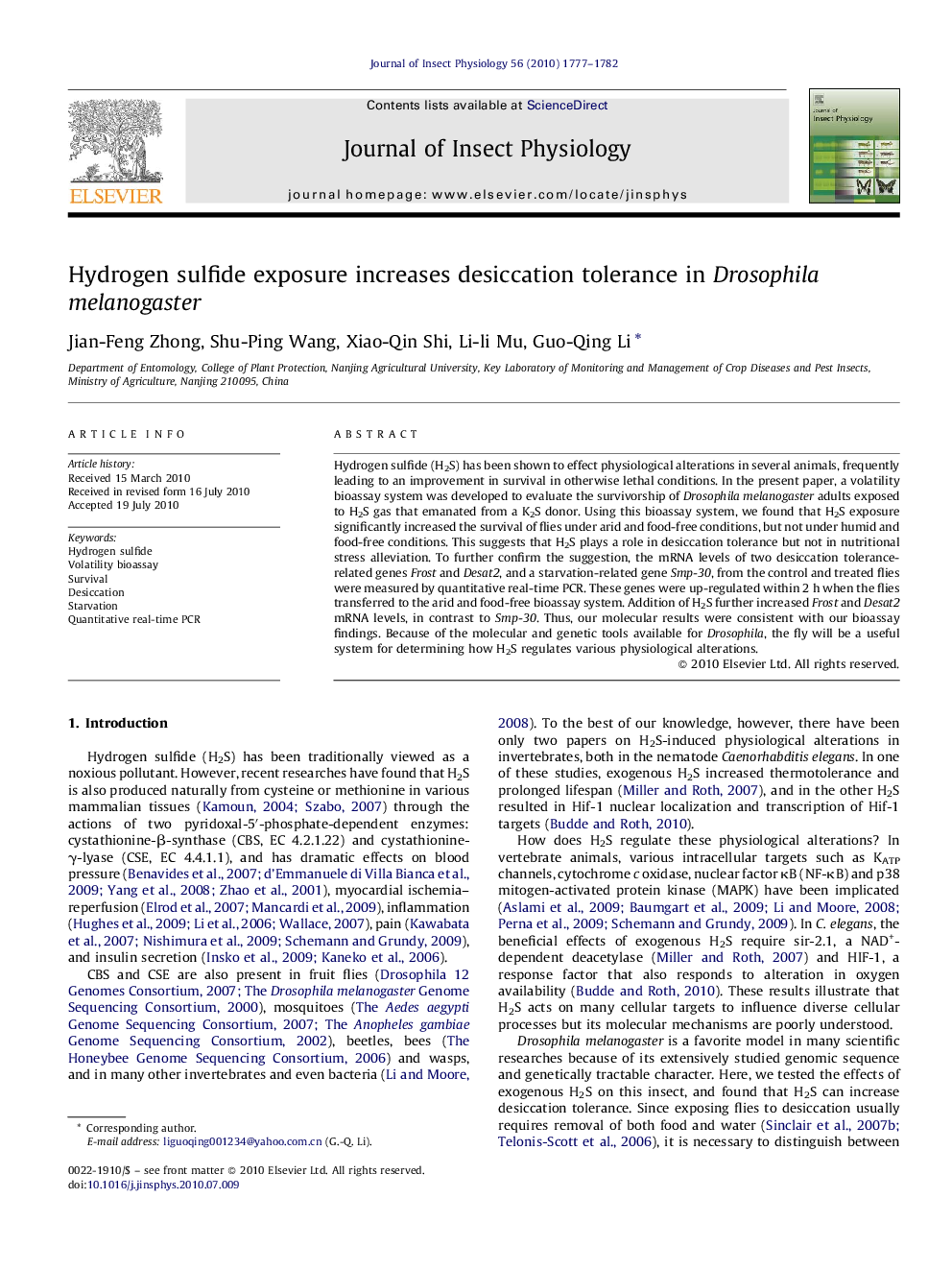| کد مقاله | کد نشریه | سال انتشار | مقاله انگلیسی | نسخه تمام متن |
|---|---|---|---|---|
| 5922065 | 1165347 | 2010 | 6 صفحه PDF | دانلود رایگان |
عنوان انگلیسی مقاله ISI
Hydrogen sulfide exposure increases desiccation tolerance in Drosophila melanogaster
دانلود مقاله + سفارش ترجمه
دانلود مقاله ISI انگلیسی
رایگان برای ایرانیان
کلمات کلیدی
موضوعات مرتبط
علوم زیستی و بیوفناوری
علوم کشاورزی و بیولوژیک
دانش حشره شناسی
پیش نمایش صفحه اول مقاله

چکیده انگلیسی
Hydrogen sulfide (H2S) has been shown to effect physiological alterations in several animals, frequently leading to an improvement in survival in otherwise lethal conditions. In the present paper, a volatility bioassay system was developed to evaluate the survivorship of Drosophila melanogaster adults exposed to H2S gas that emanated from a K2S donor. Using this bioassay system, we found that H2S exposure significantly increased the survival of flies under arid and food-free conditions, but not under humid and food-free conditions. This suggests that H2S plays a role in desiccation tolerance but not in nutritional stress alleviation. To further confirm the suggestion, the mRNA levels of two desiccation tolerance-related genes Frost and Desat2, and a starvation-related gene Smp-30, from the control and treated flies were measured by quantitative real-time PCR. These genes were up-regulated within 2Â h when the flies transferred to the arid and food-free bioassay system. Addition of H2S further increased Frost and Desat2 mRNA levels, in contrast to Smp-30. Thus, our molecular results were consistent with our bioassay findings. Because of the molecular and genetic tools available for Drosophila, the fly will be a useful system for determining how H2S regulates various physiological alterations.
ناشر
Database: Elsevier - ScienceDirect (ساینس دایرکت)
Journal: Journal of Insect Physiology - Volume 56, Issue 12, December 2010, Pages 1777-1782
Journal: Journal of Insect Physiology - Volume 56, Issue 12, December 2010, Pages 1777-1782
نویسندگان
Jian-Feng Zhong, Shu-Ping Wang, Xiao-Qin Shi, Li-li Mu, Guo-Qing Li,